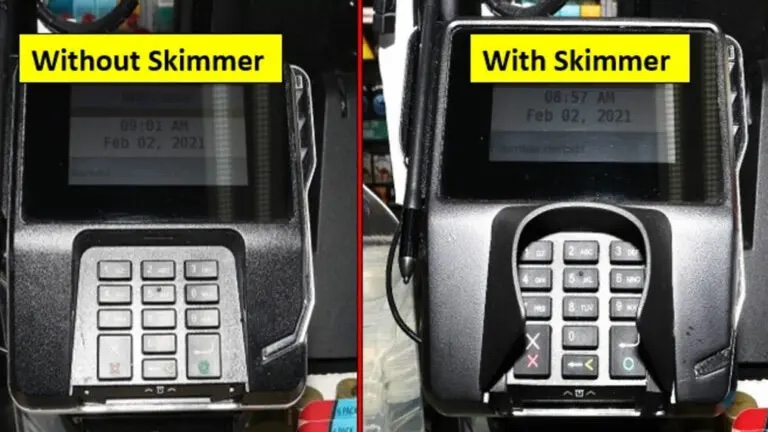 Return to Articles
Return to Articles
6.01.2024
EBT Fraud: How to Protect your EBT Benefits

Protect your EBT Benefits from Card Skimming and Cloning
EBT fraud is a nationwide problem that continues to rise. Please use the information below to help identify what to look for to reduce fraud and what to do if you suspect you may be a victim.
What is Skimming?
Skimming is a type of theft. Thieves put an overlay on a store’s card-swiping machine to capture EBT, credit and debit card information. Criminals use this data to create fake EBT, debit or credit cards. The fake cards are called clones. Cloned cards are used to steal money and SNAP benefits from real accounts.
Skimming can happen anywhere you swipe your EBT, credit or debit card. Most of the time, that means EBT or Credit Card machines and ATMs.
How to check for a Skimmer
Before using an ATM or point-of-sale terminal, check for alignment issues between the card reader and the panel underneath it. Skimmers are often placed on top of the actual card reader, which makes it stick out at an odd angle or cover arrows in a panel.
If you suspect you are a victim of Skimming/Cloning
The Nevada Division of Welfare and Supportive Services (DWSS) is now accepting claims for EBT benefits stolen through card skimming, card cloning or other similar fraudulent methods. Based on federal guidelines, some SNAP benefits stolen via electronic theft after October 1, 2022, may be eligible for replacement.
Please note: A maximum of two (2) claims may be approved each federal fiscal year (October through September). The benefits replaced will be the lesser of either the amount stolen or amount equal to two (2) monthly allotments.
Retroactive claims for theft that occurred between October 1, 2022, through July 30, 2023, will be accepted until September 28, 2023. Customers can report benefit theft in person at any welfare office, by phone (702) 486-1875 (Southern Nevada) or (775) 448-5211 (Northern Nevada), email, or online. After the report has been made, a claim form will be provided and must completed and returned within 10 business days. Additional information can be found under frequently asked questions (FAQs). If you are a victim of card skimming and/or cloning a new EBT card should be obtained immediately, by visiting any welfare office or calling the number on the back of your EBT card and changing your personal identification number (PIN).
What can I do to protect my EBT Card?
The following prevention tips will help minimize the chances of being a victim of stolen benefits:
- Utilize only the EBTEdge website, www.ebtEDGE.com or ebtEDGE mobile application available in Google Play or Apple App.
- Avoid simple PINS. Number combinations such as 1111, 1234, or 9876 may be easy for others to guess.
- Use your ebtEDGE mobile app to freeze and unfreeze your card when not in use.
- Block out of state transactions and unauthorized online purchases.
- Keep your PIN and card number secret. Do not share your PIN or card number with anyone.
- Cover the keypad when you enter your PIN at any POS machine.
- Beware of phishing. State agencies and EBT processors will never call or text to ask for your PIN or card number.
- Check your EBT account regularly for unauthorized charges. If you see any, immediately report your card as lost or stolen and change your PIN right away. Report suspicious activity to your local welfare office.
Report and Replace
Report your lost, stolen, or damaged EBT card and change your PIN as soon as possible.
- Call EBT Customer Service at 1-866-281-2443 (select language, then option 2 to report lost/stolen card).
- Go online at www.ebtEDGE.com or to the ebtEDGE Cardholder Mobile App in the Google Play or Apple App.
- Visit a local DWSS District Office to receive a new card immediately. If you cannot visit an office, call the DWSS Call Center at 775-684-0800 or 702-486-1646 about other options.
Note: When you request a replacement card, your old card is automatically deactivated and can no longer be used. The PIN for your new card will remain the same as your previous until you change your PIN.
To access the ebtEDGE mobile app scan the QR code below or look for the ebtEDGE application app in the Google Play or Apple App.
For more information, click here.






